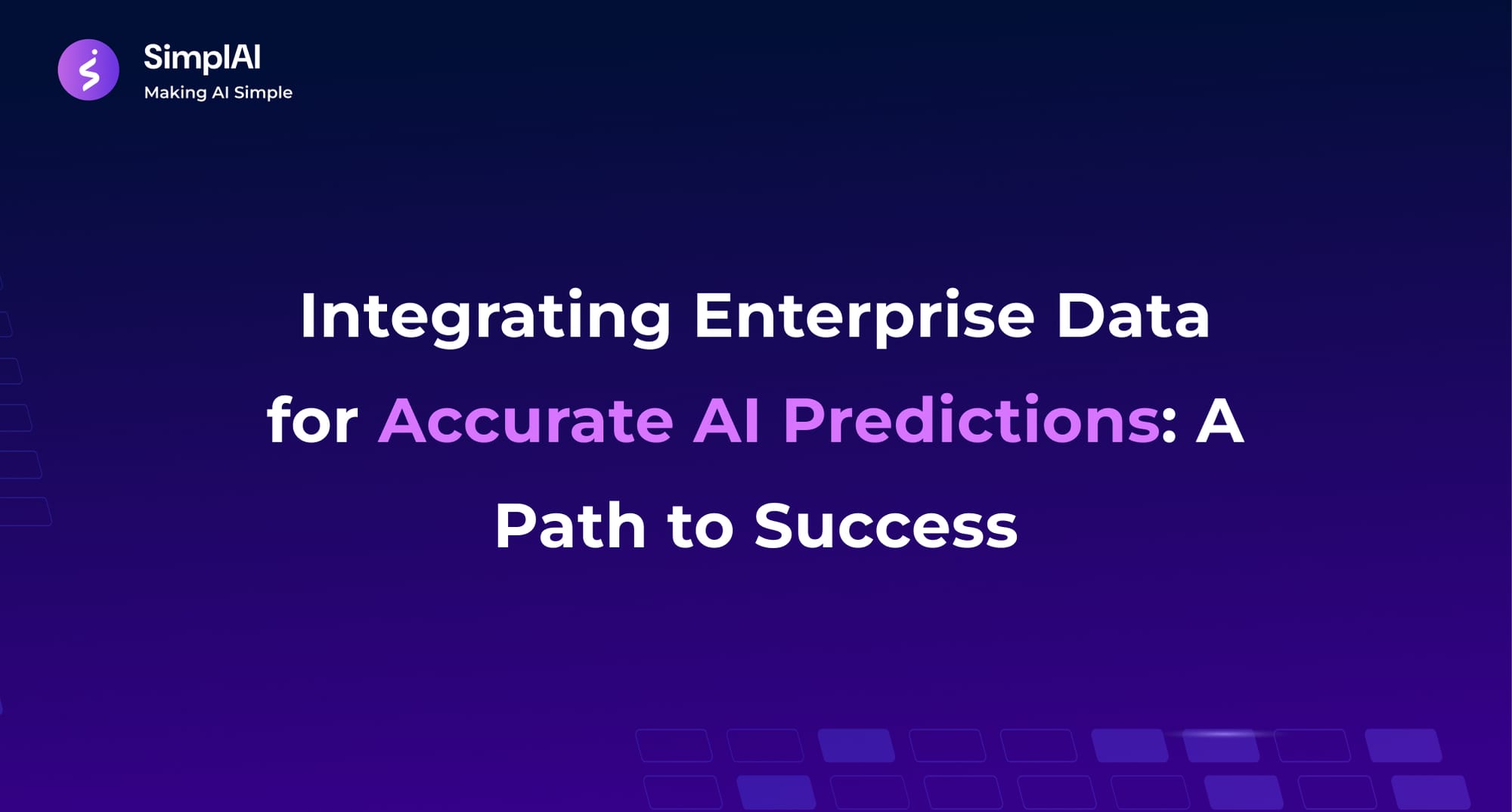Integrating Enterprise Data for Accurate AI Predictions: A Path to Success

In today's fast-paced digital landscape, businesses are harnessing the power of artificial intelligence (AI) to drive decision-making, enhance customer experiences, and optimize operations. However, the effectiveness of AI hinges on one crucial element: data. The integration of enterprise data is fundamental for achieving accurate AI predictions and is essential for creating data-driven decision-making frameworks.
The Importance of AI Data Integration
AI data integration is not just a technical requirement; it's the foundation on which successful AI initiatives are built. When done correctly, data integration empowers organizations to merge data from disparate sources, ensuring a holistic view for AI models. Without high-quality and relevant data, the risk of ineffective AI outcomes increases, leading to flawed predictions, biased insights, and wasted resources.
The Business Challenges
Organizations face several challenges in leveraging data for AI:
- Slow Decision-Making in a Fast-Moving Market: As markets evolve rapidly, the ability to utilize predictive analytics and make quick, data-driven decisions is critical. Delays can result in missed opportunities and sluggish responses to market shifts.
- Unreliable AI Results: Poor data quality—characterized by inaccuracies or incompleteness—can render AI models ineffective, harming customer relationships and exposing businesses to compliance risks.
- Cost-Reduction Pressures: In a competitive environment, there is constant pressure to enhance efficiency and reduce costs. AI can help automate processes, identify inefficiencies, and detect cost drivers.
Use Cases: Unlocking AI Success Through Integration
Data integration serves as a bedrock for AI initiatives across various sectors:
- E-commerce: By integrating customer profiles, purchase histories, and behavior data, e-commerce platforms can suggest personalized products, leading to increased customer loyalty and reduced churn.
- Financial Services: In credit management, organizations leveraging accurate data integration can make better predictions regarding loan approvals by assessing integrated consumer data and transaction histories.
- Healthcare: Integrated data has the power to improve patient outcomes significantly by offering comprehensive insights from various data sources, enabling predictive analytics for diagnostics.
The Five Essential Steps to Data Integration for AI
To achieve success in integrating enterprise data for accurate AI predictions, organizations should follow these five essential steps:
- Define Goals and Scope: Align data integration efforts with overall business and AI objectives. Identifying specific challenges to solve and expected outcomes sets clear expectations.
- Assess the Current Data Landscape: Evaluate existing data repositories and assess the quality and availability of data across departments. This mapping allows organizations to identify valuable data sources.
- Choose the Right Tools and Partners: As enterprises pursue their AI goals, selecting the right data integration tools and partnering with vendors that align with the organization’s vision is critical for long-term scalability.
- Maintain Quality and Governance: Implement consistent data quality checks and governance protocols to ensure the reliability of the integrated data. This process guarantees that all data feeding into AI models is accurate and actionable.
- Monitor and Optimize Outcomes: Data integration is an ongoing journey—regularly review and refine integration processes to address bottlenecks and optimize performance.
Conclusion
Integrating enterprise data for accurate AI predictions isn't merely a technical requirement—it's a strategic imperative. By focusing on effective data integration, organizations can unlock the full potential of AI, transforming insights into actionable strategies that enhance competitive advantage.
As businesses continue to adapt to the AI-driven future, what steps will you take to ensure your data integration process is robust and prepared for success?
Explore SimplAI today to discover how our innovative platform can support your data integration efforts!

